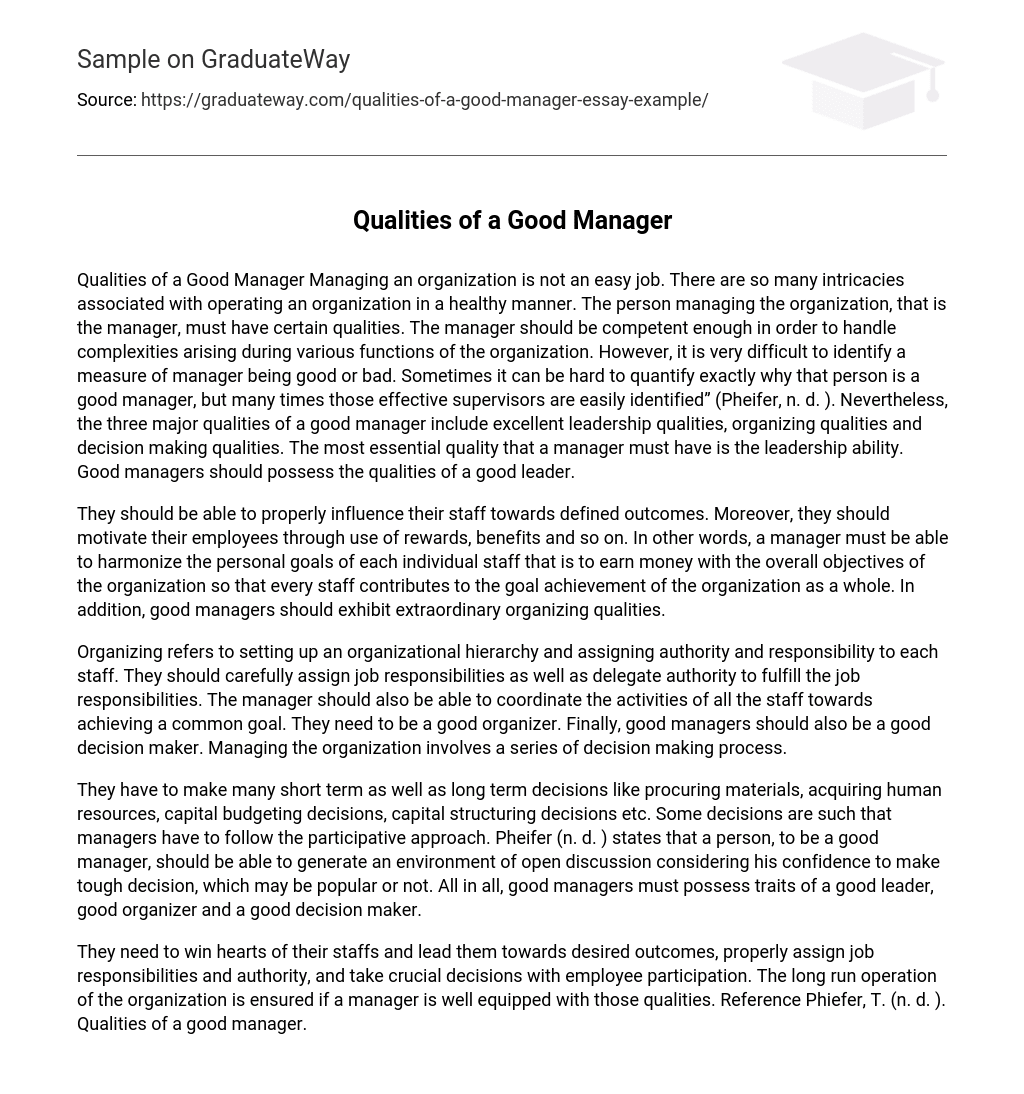Managing an organization is a challenging task, requiring numerous intricacies to ensure its successful operation and health. The manager, responsible for overseeing the organization, needs specific qualities and competence to effectively navigate the complexities that arise throughout various functions.
Identifying whether a manager is good or bad can be challenging since the factors that contribute to their effectiveness are often difficult to measure. Nonetheless, it is generally simple to recognize effective supervisors (Pheifer, n. d.). Nevertheless, the key qualities of a proficient manager encompass robust leadership skills, organizational prowess, and adept decision-making capabilities.
The crucial attribute necessary for a manager is the skill to lead. They must possess the qualities of successful leadership and have the ability to direct their team towards desired results. Furthermore, they should motivate and encourage employees through rewards and perks. Essentially, managers must align the individual aspirations of each staff member, like financial gain, with the organization’s overall goals. This ensures that every employee contributes to achieving these objectives. Also, proficient managers should demonstrate outstanding organizational skills.
Organizing includes establishing a hierarchical structure, allocating authority and responsibility, carefully assigning job responsibilities, and delegating authority to ensure tasks are fulfilled. A manager must also possess coordination skills to align staff activities towards a shared objective. Being a competent organizer is crucial for effective management. Moreover, being a skilled decision maker is another important aspect of good managerial abilities as the process of managing an organization involves making multiple decisions.
Managers must make both short-term and long-term decisions, which include procuring materials, acquiring human resources, making capital budgeting decisions, and making capital structuring decisions. Certain decisions necessitate a participative approach for managers to follow. Pheifer (n. d.) asserts that an effective manager should establish an environment of open discussion while displaying confidence in their ability to make difficult but necessary decisions, even if they are not popular. In essence, good managers should embody the qualities of strong leadership, organization skills, and decision-making capabilities.
To ensure the continued success of an organization, a manager must possess specific qualities. These include winning the trust and loyalty of their staff, guiding them towards desired goals, effectively delegating job responsibilities and authority, and involving employees in important decision-making processes.
Reference
- Phiefer, T. (n. d. ). Qualities of a good manager.





